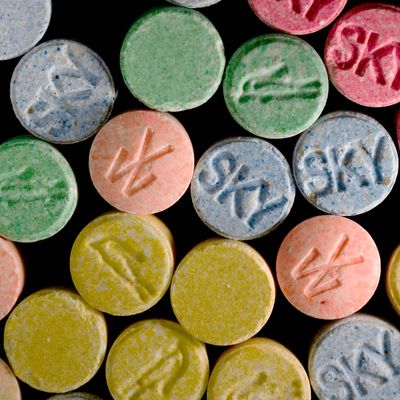
Modern humans outlive the reproductive imperatives that evolutionary biologists hold responsible for the system of neurological rewards and attachments we call “love.” Once you’ve been mated long enough to have a couple of kids and keep them alive until they’re old enough to have their own kids, natural selection has no interest in producing the loving-feeling brain juices. Hence the high divorce rate: Humans just weren’t built for decades and decades of sexually exclusive monogamy. Could drugs help?
Some Oxford ethicists say yes. Brian Earp, Anders Sandberg, and Julian Savulescu, who have written a number of papers on the topic, told The Atlantic that love-enhancing drugs wouldn’t be much different from saving your relationships with antidepressants or Viagra.
The interview is heavy on ethics and light on actual drug information, but does name two potential love drugs. The first is oxytocin, “sometimes called the ‘love hormone’ for its role in sustaining mother-infant and romantic attachment bonds.” When researchers at the University of Zurich gave oxytocin nasal sprays to romantic couples in the middle of an argument, it reduced stress levels and “negative communication behaviors.” They should also try this in the checkout lines at Target on the weekends. The second is MDMA, or ecstasy, which apparently used to be given out in couple’s therapy to “boost empathy,” improve “emotional communication skills,” and, presumably, make the other person’s taste in music more tolerable. “While this sort of use would be illegal today,” Earp told The Atlantic, “there has been a recent resurgence of scientific interest in possible therapeutic uses for MDMA, for example to treat Post Traumatic Stress Disorder.”
Earp warns against “putting a chemical band-aid on a violent or abusive relationship” (and our brains are depressingly good at doing that on their own), but he thinks some couples could be morally obligated to try out a hypothetical love potion No. 9. Those with young children “have a responsibility … to preserve and enhance their relationships for the sake of their children.” I would add only that, judging from the rave episode of Dawson’s Creek, they also have a responsibility to get a babysitter.
The most obvious objection to love drugs is that it isn’t our brains that are broken, it’s marriage. If exclusive sexual fidelity doesn’t work for today’s life span, let’s stop prizing it so highly. But Earp & Co. say love drugs have applications in the polyamorous/non-monogamous set too.
“One possibility is that love drugs could be used to eliminate jealousy rather than the impulse to stray — and for individual couples, this might indeed be a worthwhile strategy. For couples who are committed to polyamory, for example, jealousy would seem to be the odd man out: it conflicts with the polyamorists’ higher-order goals for sexual openness.”
Though they remain value-neutral on monogamy, they argue that it is morally justified, again, when there are kids involved, “since extramarital sex can lead to extramarital love that would divert time and energy directly away from existing offspring.” Childless couples and people for whom “non-monogamous social institutions have a good chance of contributing to human welfare” (Like, people who like hanging out with friends?) don’t need to go “out of their way to ‘prop up’ problematic social norms through the use of pharmacology.” When they do it, it’s just for fun.




